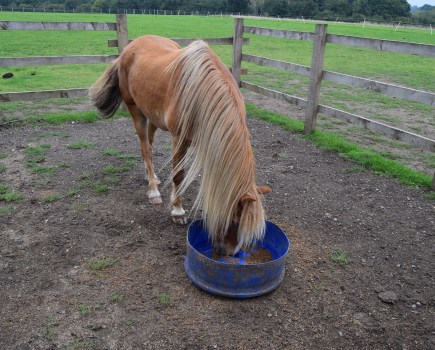Respiratory disease is the biggest equine health problem for UK owners, a Bedmax survey has revealed.
More than 45 percent of the 993 owners who completed the survey had horses that had suffered a health problem, as opposed to an injury, that required box rest and/or veterinary treatment.
Just over 30 percent reported that it was respiratory health or disease. All previous Bedmax Equine Health surveys have given similar results.
The Equine Vet, Peter “Spike” Milligan, said respiratory health is fundamental to a horse’s wellbeing.
“If not properly treated and managed there can be long term effects on the lungs that can reduce life expectancy in some horses,” he said. “Apart from equine flu and the herpes virus, the most common respiratory problems are multifactorial, but the inhalation of airborne particles and the irritation to the mucosal lining of the respiratory tract is one very common factor.”
The survey found that 90 percent of horses are either kept at home or at DIY Livery, with leisure riding the most popular equine activity.
Overall, the top equine health problems suffered were:
- 30 percent respiratory ill health
- 21 percent laminitis
- 20 percent arthritis
- 12 percent mud fever
- 10 percent hoof disease, cracking, infection
Hygiene was also a key priority in respondents’ choice of bedding, underlining growing concerns over biosecurity in stables where most horses spend at least half their lives. Over 70 percent of owners confirmed that in the winter months they keep their horses in the stable for a minimum of twelve hours out of every twenty-four.
The cost of equine health problems was also a significant issue. Of the 520 owners responding to the request to indicate their veterinary costs for treating health problems, more than 40 percent paid over £1,000 for treatment; 22 percent paid over £2,000.
Loss of use was also significant, as over 55 percent of owners experiencing equine health problems, said that their horses were on box rest and/or could not be ridden for more than a month.
Over 90 percent of respondents said they allowed local farmers (66 percent) to compost their used bedding or gardeners (25 percent) to return it to the soil.
“Our annual survey is a really illuminating exercise as it helps us find out what horse owners are experiencing and what is really important to them,” said Tim Smalley, Managing Director of Bedmax.
“It is interesting to see that respiratory ailments remain the most prevalent equine health problem. At Bedmax we make our shavings from fresh pine, which offers unique antibacterial action against harmful bacteria and fungi. We also dry our shavings at sterilising temperatures and vacuum extract every particle of airborne dust we can during production, to help avoid this very problem.
“I am absolutely committed to producing the best possible horse bedding and I am really proud of our team at Bedmax. Our recent NOPS accreditation is testament to our hard work, as we are the only producer so far to have this award.”









